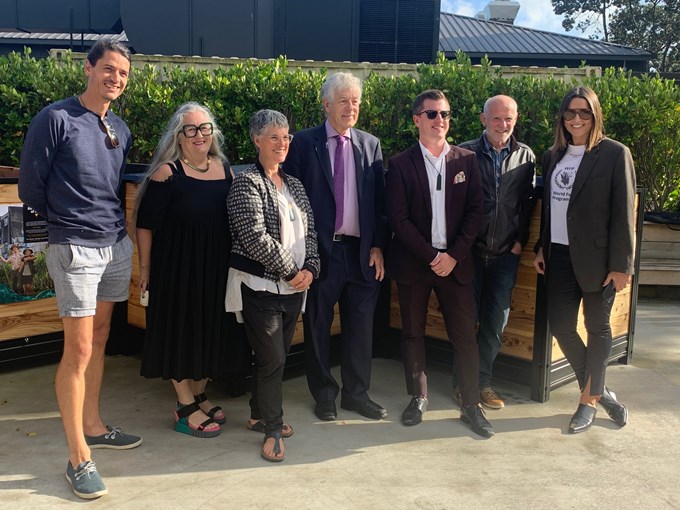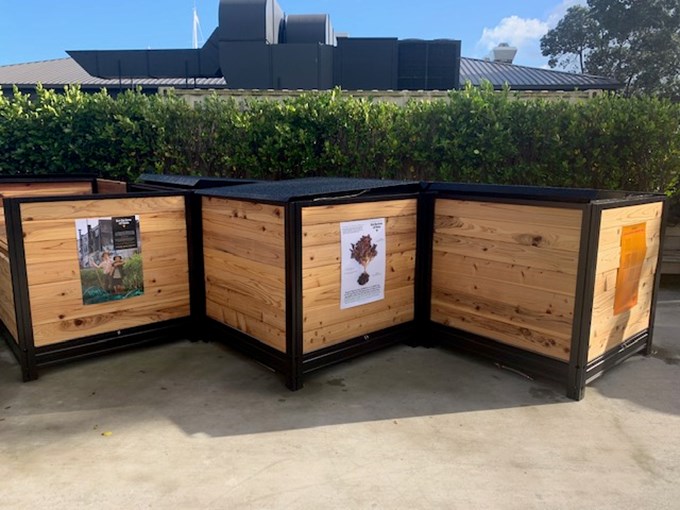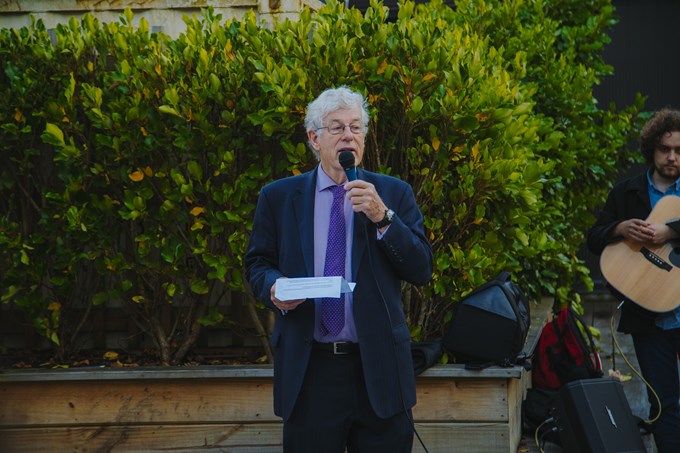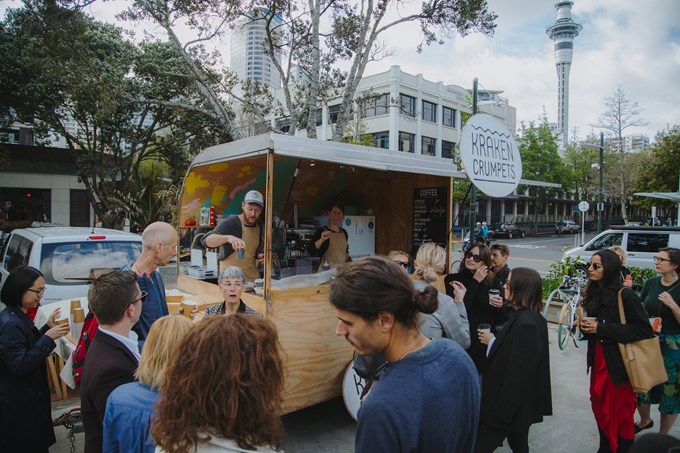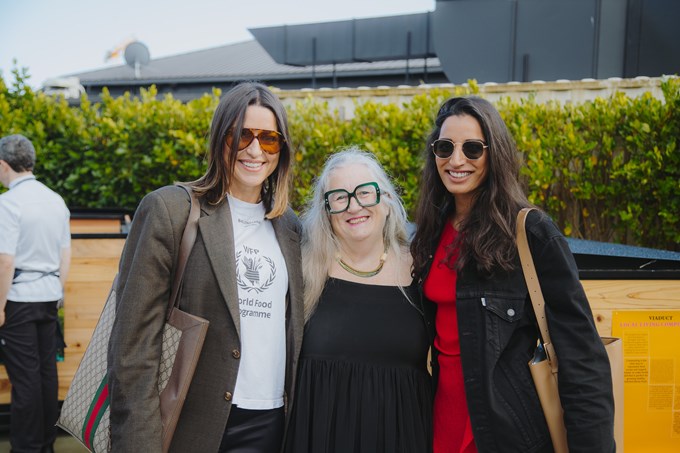The first composting pilot project of its kind in Auckland's city centre and waterfront was officially launched yesterday.
The Viaduct Local Living Compost Hub is a creative and innovative scheme helping businesses work towards zero-waste and is a collaboration between Auckland Council, Viaduct Harbour, New Zealand Box and For the Love of Bees.
The initiative will see six compost boxes, designed and supplied by NZ Box, installed behind Headquarters – who have enabled the project to happen on their site.
Constructed from wood and steel using innovative technology, the boxes are durable, odour-free, vermin-proof and can be installed on any urban surface — realising the potential for composting to take place beyond community garden-style environments, where city centre composting has only been seen previously.
The project was officially launched on 19 November at the Viaduct Harbour for an eight-month feasibility study, including training for local eateries to correctly use the composting system.
The first Viaduct Harbour business to be inducted into the programme is Hello Beasty, which has already introduced systems for separating organic waste in their kitchen.
The compost produced by the trial will be used by local eateries to grow produce, as well as being donated to urban farms in the city.

